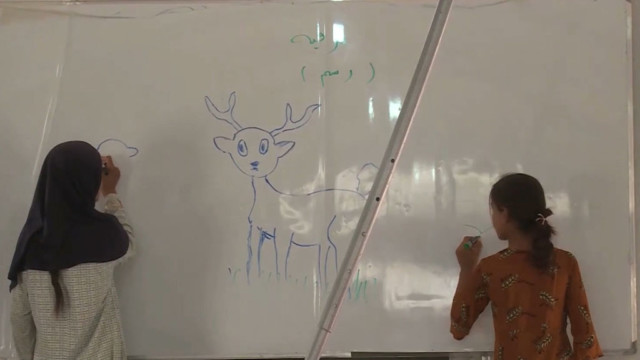Rebuilding Mosul’s education system will take time and a lot of money.
But only 4 percent of the $70 million requested by the United Nations has been met and for hundreds of thousands of children, ISIL’S three-year occupation has left a gap in their education and lasting trauma.
CGTN’s Tony Cheng reports.
Follow Tony Cheng on Twitter @TLCBkk
“I’m tired, so tired,” Yousef, a resident of Mosul said. “Today my daughter finished all the milk we have,and I have no money to buy any more.”
Yousef sounded exhausted as he spoke, trapped inside Mosul’s old city 4 weeks ago. He had no food or water for his three children, and was facing one of the most concentrated bombardments in recent history.
At great risk to themselves they had been updating CGTN on the battle against ISIL, but then they disappeared.
Thankfully Yousef, his brother, and their families managed to escape.
Their home was destroyed but they have been temporarily housed in the East of the city.
Nonetheless, the fighting—and with three years of living under ISIL control—has left its scars on his children.
“When we sleep in the house we close all the doors and windows,” Yousef explained. “They’re still afraid, and every time before they sleep the kids say to us, have you closed it? Because they don’t want ISIS to come in. They say they’d prefer the windows to be closed than to have fresh air.”
As the battle to retake Mosul raged, its inhabitants bore the brunt.
An emaciated boy survived for 20 days in ruins without food. Hundreds of thousands are now living in camps until their homes can be rebuilt.
But facilities are basic, and for children emotionally scarred by war, there is nothing but time to allow their emotional wounds to fester.
Melany Markham of the Norwegian Refugee Council explains that the agencies trying to rehouse and rehabilitate those forced from their homes know that children are the key to the future.
“Children are really a hope for lasting peace in Iraq,” she said. “so if we don’t offer them the opportunity for an education, the opportunity to heal from these horrific experiences, then there’s every chance we will perpetuate conflict.”
Some basic schools are now operating. There are art classes for students who have been away from education for three years under ISIL’s occupation. There’s also a biology class, a subject that was banned for boys who were taught to count using bullets and bombs.
But resources are scarce. This school serves two thousand children and has just 10 teachers.
And it is hard to make children feel safe when their home is a tent.
With their city in ruins, it will take many months, if not years, before these children have a permanent home and finally feel safe.
 CGTN America
CGTN America

